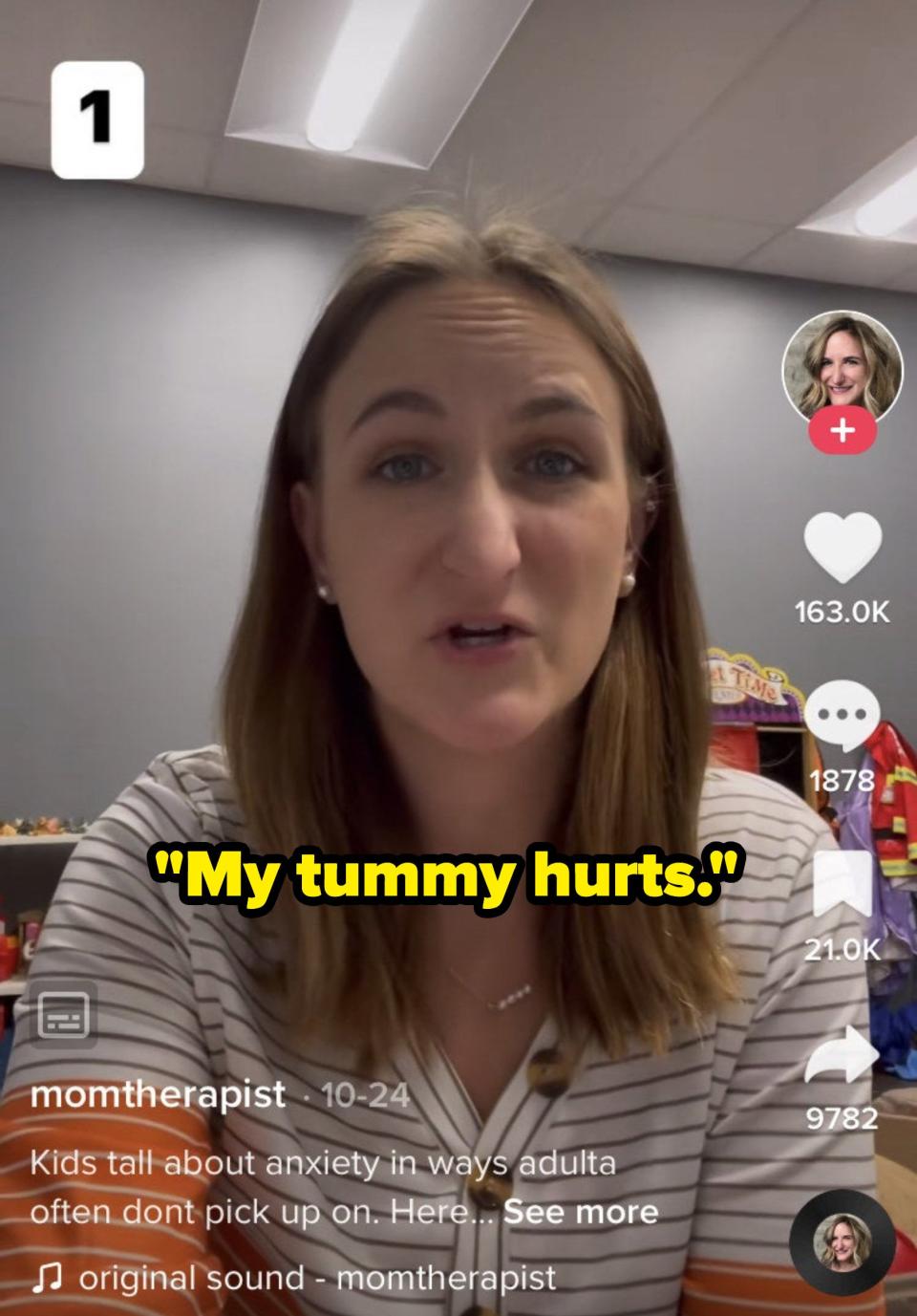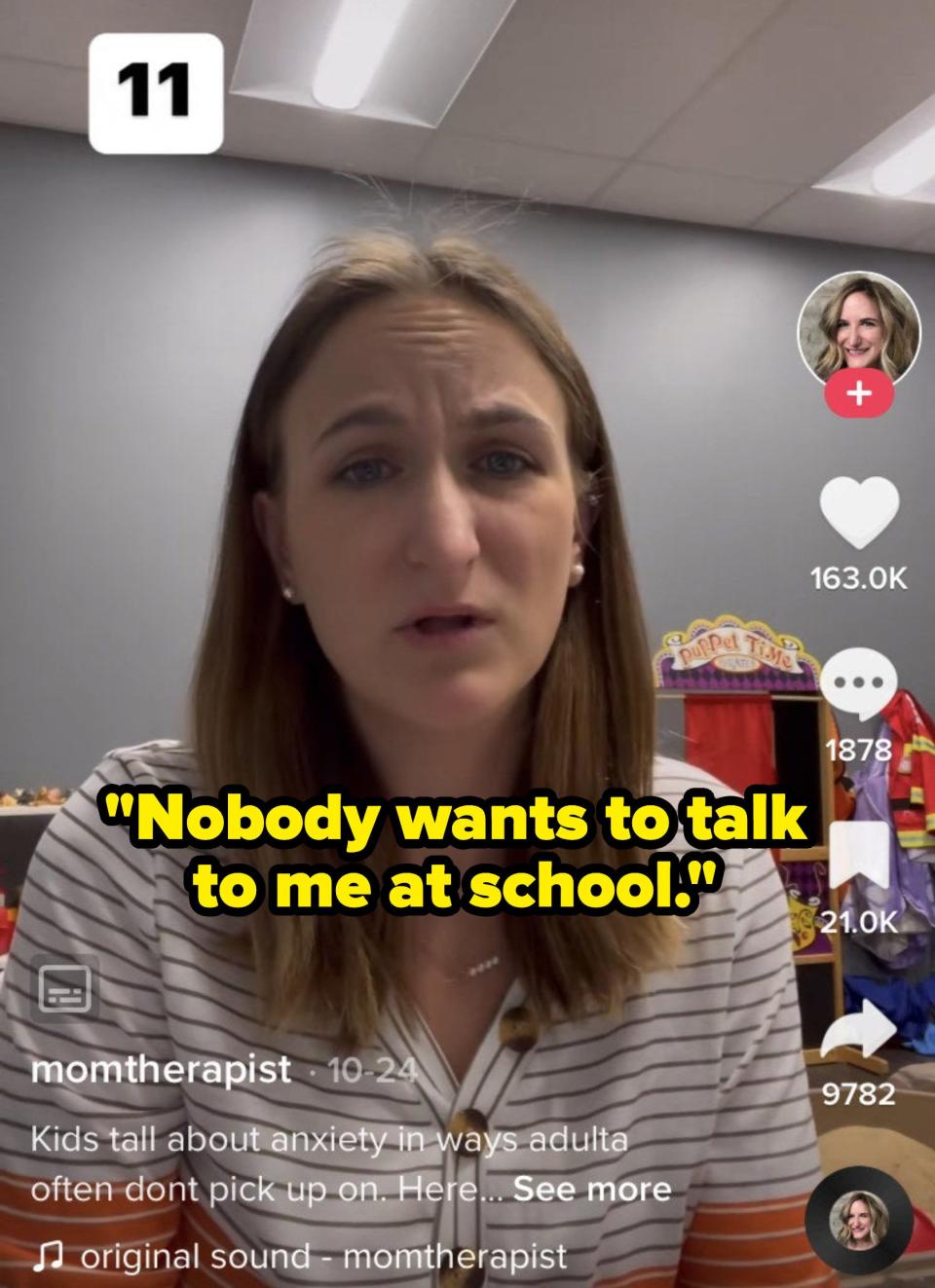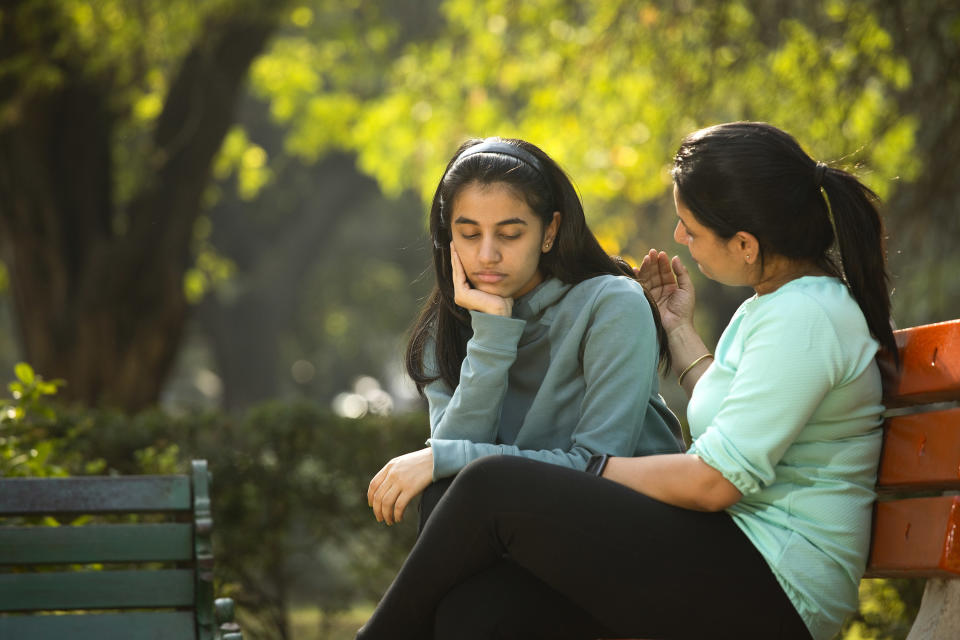This Therapist And Mom Is Going Viral On TikTok For Sharing How To Spot Anxiety In Kids, And As A Former Anxious Kid, She's 100% Correct
I finally got diagnosed with anxiety and a panic disorder in my mid-20s, but looking back I was definitely very anxious as a kid too. Anxiety affected everything from my grades to my friendships, and I was sick to my stomach every morning before school. Now I think it's really important to talk about mental health and what conditions like anxiety can look like in kids so other kids don't go unseen and unassisted.

Understanding my anxiety absolutely changed my life for the better. Thanks to therapy, medication, and practicing new coping skills, I now have way more good days than bad, and I'm able to enjoy my life sooooo much more.
So when I came across a viral TikTok from Melissa Griffing (@momtherapist) LPC, RPT, I knew I had to learn more. In the video, the 33-year-old child therapist and mom shares 15 things kids say that can point to anxiety, and I can remember saying pretty much all of them when I was an anxious kid myself.
She starts the clip, which has been viewed over a million times, by saying, "Did you know kids talk about anxiety in a whole heck of a bunch of different ways that parents often don't pick up on?" And then lists 15 different phrases that kids use that can signal that they're feeling nervous, worried, and anxious.

Here are the phrases:

• "'My tummy hurts.'
• 'I don't want to go to school.'
• 'I'm not hungry.'
• 'I hate you.'
• 'What if? What if? What if?'
• 'I need to pee again.'
• 'I can't sleep.'
• 'I don't know.'
• 'My legs hurt.'
• 'I just want to stay with you.'
• 'Nobody wants to talk to me at school.'
• 'Nobody likes me.'
• 'My arms hurt.'
• 'I think I'm getting sick.'
• 'I don't like it.'"
And in the comments, people are talking about how much they can see their kids and their younger selves in this video.

Melissa has also made some sequel videos sharing some of her favorite tips for parents who want to help their kids understand and cope with their anxiety. In one clip, she explains, "The first step in helping your kids to manage their anxiety is to help them understand what they're feeling when they're feeling it — which means you have to recognize that they're anxious."

Then she demonstrates a skill called "reflecting feeling" with a clip of her talking with one of her sons. The child is struggling to open a door, and Melissa gently points out how he's feeling, saying, "You're frustrated." Then, she calmly talks him through finding a solution and resolves the situation.

Melissa told BuzzFeed, "Kids often don’t understand that they are feeling anxious or worried. Instead, it comes out as symptoms… 'My tummy hurts'; 'My head hurts'; 'I don’t want to go'; 'I don’t feel like it.' These are all ways to avoid the thing that is making them feel anxious and all phrases I have heard repeatedly from kids or parents describing the issues they are experiencing with their kids."
And she says certain behaviors can also point to anxiety. "Anxiety has many symptoms. In young children, the fight-or-flight response is often triggered. So, when a 3-, 4-, or 5-year-old is anxious, they exhibit big behaviors like screaming, crying, kicking, fighting, biting, or running away."

"In older kids, we might see avoidant behaviors, physical symptoms like headaches or stomach aches, kids shutting down and becoming non-compliant, or even rude and disrespectful. Other times when anxiety is present, the body’s response is to freeze. So, what looks like a kid being lazy, non-compliant, or procrastinating is actually the brain being paralyzed with worry and stress."

But the 15 phrases she mentioned in her video don't always point to anxiety. As some parents mentioned in the comments, a kid might say they can't sleep because they really just want to stay up and play video games. Melissa explains, "Kids are intelligent and sometimes know what to say to get their way. It brings up an important point: For anxiety to be clinically diagnosable, these phrases must be accompanied by other symptoms. Parents should be on the look for irritability, difficulty concentrating, muscles tensed all the time, feeling restless or antsy, and/or difficulty with sleep."

"The thing is everyone experiences these symptoms from time to time, so the key here is that the symptoms seem to happen more frequently and prolonged than same-aged peers and are causing a disruption in the child’s life. For example, if a child is starting to fall behind in school because they are so anxious, they can’t complete work or even go to school."

And finally, she has some advice she wants to share with parents who see their kid in her videos. "I think it’s important for parents to remember that the topics kids worry about are the biggest issues they have yet to come across. They haven’t yet had to worry about rent, politics, taking care of another human, or any of the various things adults worry about."

"So, when your teenager comes to you with some teen drama and you find yourself dismissing their worries because you and all your life experience know this is really not that big of a deal, try to remember that they haven’t had those life experiences yet, and to them, it is that big of a deal."

"So listen, empathize, reflect their feelings, and guide them through it. Also keep in mind that all those things you, as the parent, have to worry about are really stressful! Take the time to engage in self-care so you have the bandwidth to be that patient, understanding, caring, and empathetic parent that we all strive to be. And after reading this article, if you are wondering if you or your child needs help learning new skills to manage stress and anxiety, reach out to someone! If you’re unsure who, start with your primary care physician or pediatrician. They often have resources available and can get you to the right place!"


